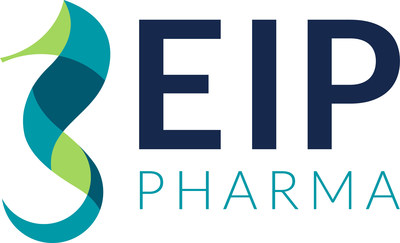EIP Pharma announced the successful completion of $11.2 million in new private funding to explore the use of the investigational drug neflamapimod as a treatment for dementia with Lewy bodies and for the cognitive deficits in Huntington’s disease.
CAMBRIDGE, Mass., April 15, 2019 /PRNewswire/ -- EIP Pharma, a CNS-focused therapeutics company, announced today the successful completion of $11.2 million in new private funding to explore the use of the investigational drug neflamapimod as a treatment for dementia with Lewy bodies and for the cognitive deficits in Huntington’s disease. Phase 2 clinical studies in these new disease indications for neflamapimod are expected to be initiated in the second quarter. The investors include Adage Capital Management, Rock Springs Capital and Mossrock Capital.

“The ongoing REVERSE-SD trial will provide proof-of-concept clinical trial results in patients with Early Alzheimer’s disease this fall. However, toxicity of neuroinflammation to the synapse has also emerged as a major driver of cognitive dysfunction in most other neurodegenerative diseases. This new funding will allow us to evaluate the potential of neflamapimod in two of these other diseases where cognitive deficits are prominent, dementia of Lewy bodies and Huntington’s disease,” said John Alam, MD, President and CEO, EIP Pharma.
Neflamapimod is a brain-penetrant oral small molecule that inhibits the enzyme p38 alpha, an intracellular kinase implicated in the development of synaptic dysfunction (SD) in Alzheimer’s disease. The role of neuroinflammation in dementia with Lewy bodies is akin to that seen in Alzheimer’s disease, and p38 alpha plays a role in toxicity induced by alpha-synuclein (the protein constituent of Lewy bodies). In the cognitive impairment observed in Huntington’s disease, hippocampal functional deficits are prominent in early disease. The specific designs of the new phase 2 clinical trials will be announced at the time of study initiation.
About neflamapimod (VX-745) and p38 MAPKα
Neflamapimod (formerly VX-745) is a brain-penetrant oral small molecule that inhibits the intra-cellular enzyme p38 MAP kinase alpha (p38α). In the context of Alzheimer’s disease, p38α, which is expressed in neurons under conditions of stress and disease, is considered to play a major role in inflammation and/or amyloid beta induced synaptic toxicity, including the impairment of synaptic function (specifically synaptic plasticity). Impaired synaptic plasticity in the hippocampus is known to be a major driver of the development of deficits in learning and memory formation that are defining characteristics of Alzheimer’s disease. Phase 2a clinical trial data were published in April 2018 in the Annals of Clinical and Translational Neurology and are available on an open access basis.
A Phase 2b double-blind, placebo-controlled study in patients with Early Alzheimer’s disease called REVERSE-SD completed enrollment at the end of 2018 and results will be available in the fourth quarter of 2019. The primary endpoint of REVERSE-SD is improvement in episodic memory, as assessed by the Hopkins Verbal Learning Test. Secondary endpoints include Clinical Dementia Rating Scale Sum-of-Boxes, Wechsler Memory Scale, and spinal fluid biomarkers of disease progression.
Neflamapimod was discovered by Vertex Pharmaceuticals, Inc. and licensed by EIP Pharma in 2014.
About EIP Pharma
EIP Pharma, Inc. is a private, Cambridge, MA-based company advancing CNS-focused therapeutics for improved patient benefit. For more information, please visit www.eippharma.com.
![]() View original content to download multimedia:http://www.prnewswire.com/news-releases/eip-pharma-closes-11-2-million-financing-round-to-advance-development-of-neflamapimod-in-additional-neurodegenerative-disease-indications-300831839.html
View original content to download multimedia:http://www.prnewswire.com/news-releases/eip-pharma-closes-11-2-million-financing-round-to-advance-development-of-neflamapimod-in-additional-neurodegenerative-disease-indications-300831839.html
SOURCE EIP Pharma, Inc.




